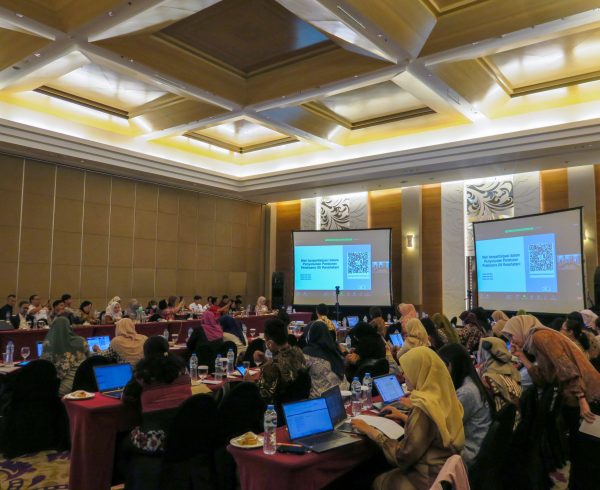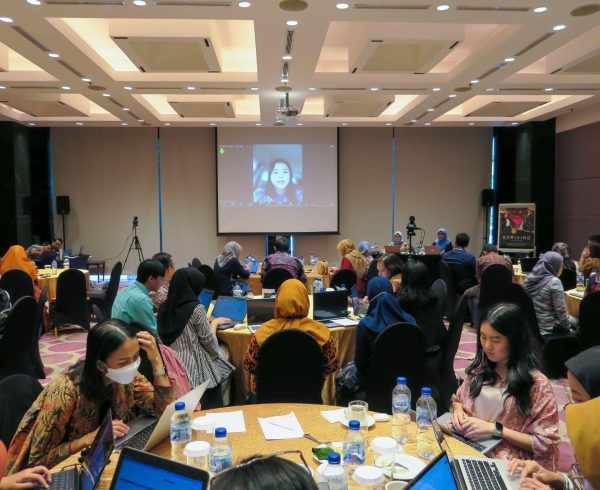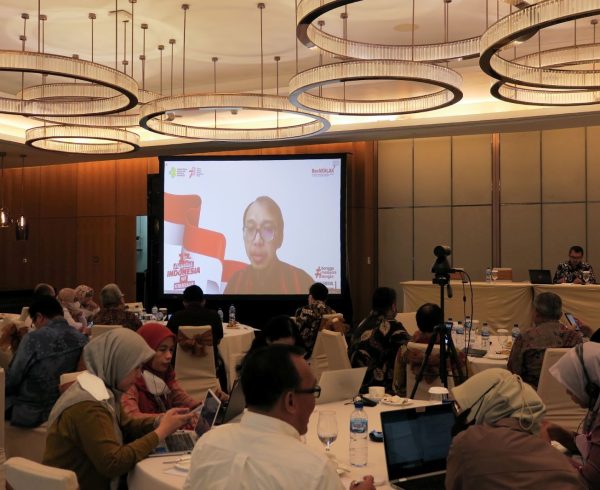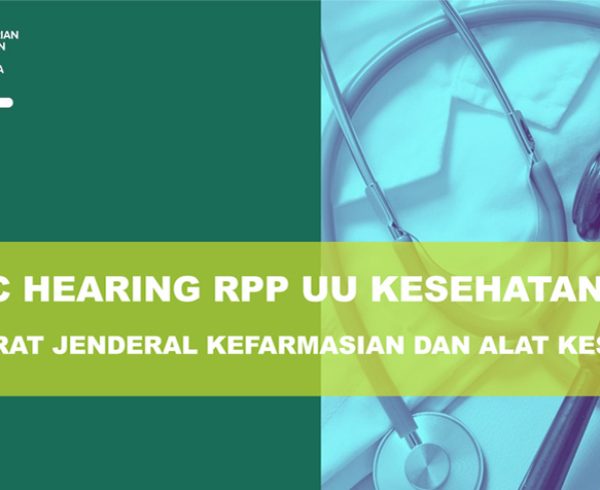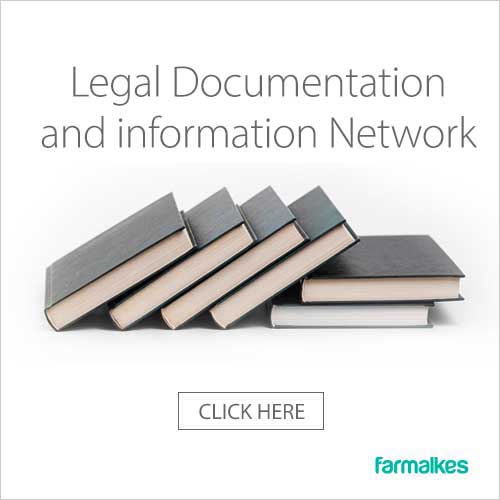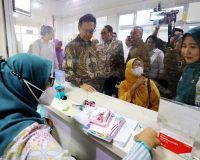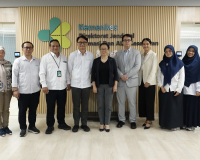Jakarta, 19 September 2023.
The Directorate General of Pharmaceuticals and Medical Devices of the Indonesian Ministry of Health started a public hearing on the Draft Government Regulation (RPP) of Health Law No. 17 Year 2023 to obtain views and inputs from the public and stakeholders as part of meaningful ethical participation.
The meeting was held in Jakarta on a hybrid basis and will be held serially from September 19 to 22, 2023, beginning with a discussion on the topics of Availability, Equity, and Affordability of Health Supplies and Pharmaceutical Practices and Drug Classification.

Secretary of the Directorate General of Pharmaceuticals and Medical Devices, Dita Novianti in her speech said "Since the issuance of Health Law Number 17, there have been a lot of reactions from the public, one of which is the many questions why it is not regulated in the law, whereas actually when the law is implemented it will be followed by derivative regulations, one of which is the results of the RPP," said Dita.
The Secretary hopes that this public participation can be arranged to accommodate input from the public widely and as complete as possible, so that the public gets the same rights, namely the right to be heard, to be considered for their opinions and to get an explanation or answer to the opinions given.
The Director of Pharmaceutical Management and Services, Agusdini Banun Saptaningsih, said that Law No. 17 of 2023 concerning Health which was recently passed delegates 108 articles to be regulated by PP, PerPres and Permenkes, where 101 articles are delegated to be regulated by government regulations which are implied into one RPP which regulates several things, one of which is related to pharmaceuticals, medical devices and health supplies.

"The management of health supplies is intended to fulfill the availability, equity, and affordability of health supplies in the implementation of health efforts both in normal conditions and conditions of outbreaks, epidemics, and disasters," Agusdini explained in the Health Supplies session.
Agusdini said that the Central and Regional Governments are responsible for the management of health supplies which are regulated in articles 900 to 901. The Central Government and Regional Governments may establish pharmaceutical management facilities which are facilities for managing pharmaceutical preparations, medical devices, and other health supplies owned by the Central Government and Regional Governments.
The Central Government and Regional Governments control availability through a Health Information System that is integrated with the National Health Information System to ensure that there is no excess and shortage / vacancy of Health Supplies in the implementation of health efforts.
Agusdini further said that the Government has started to build and implement one platform, namely one healthy logistics (national digital inventory) for monitoring national drug and BMHP stocks and tracking transactions and distribution of drugs and BMHP per region. Currently, vaccine management throughout Indonesia is gradually carried out one door through the Electronic Logistics (SMILE) Immunization Monitoring System (Inventory) application and can be monitored in real time. As for AIDS, TB, and Malaria (ATM) drugs, it has begun to be implemented in 3 provinces, namely Papua Province, NTT and DIY.
In the next session, Agusdini explained the classification of drugs consisting of prescription drugs and non-prescription drugs, which differentiate drug categories based on the risk of use which aims to ensure safety and accuracy in the use, delivery and distribution of drugs.
"Prescription drug services can use electronic prescriptions and must go through a Health Information System that is integrated with the National Health Information System," said Agusdini.
Agusdini added that for the determination and change of drug classification, in the event of scientific and technological developments, the Minister may determine drug classification and/or make changes to drug classification other than classification. In determining drug classification and/or making changes to the classification, it can involve related ministries/institutions, practitioners, and academics and further provisions regarding drug classification are regulated by Ministerial Regulation.
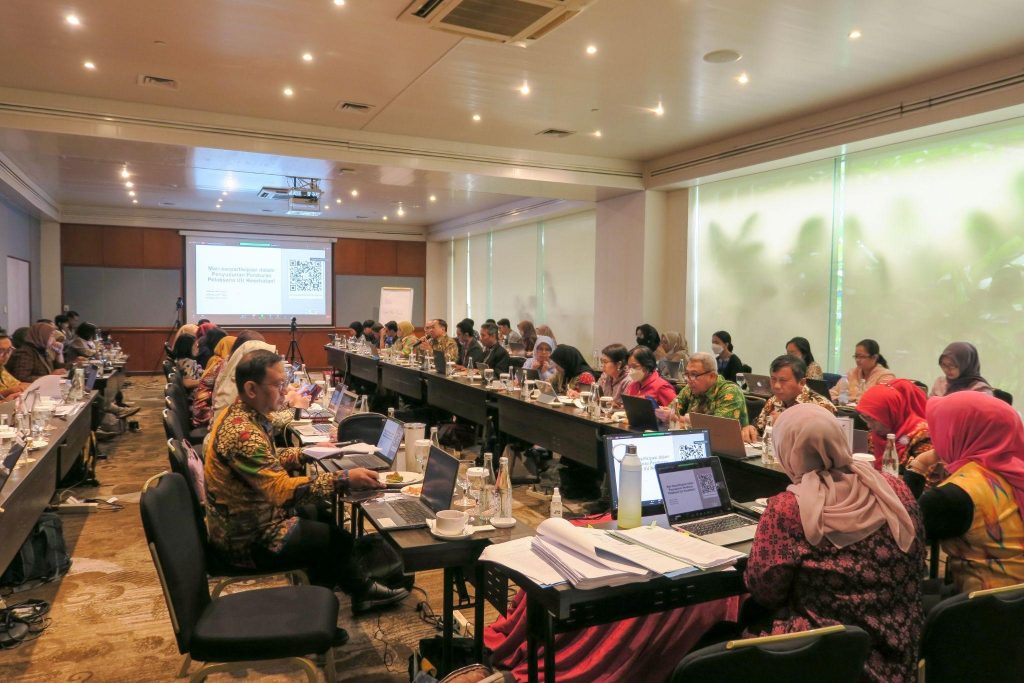
"For non-prescription drugs, in this case over-the-counter drugs and limited over-the-counter drugs, can be accessed by the public at pharmaceutical facilities and other facilities (hypermarkets, supermarkets, and minimarkets/HSM). The determination of these drugs will be further regulated in the Minister of Health Regulation," Agusdini continued.
The Ministry of Health will continue to gather input and aspirations from the public as widely as possible. The public can follow this activity through YouTube Ministry of Health RI and actively participate by providing input and suggestions through the website page https://partisipasisehat.kemkes.go.id/ The public hearing activities will continue until Friday, September 22, 2023 by involving stakeholders from various ministries/agencies, professional organizations, business associations, associations, communities and foundations, expert teams, health offices and the public



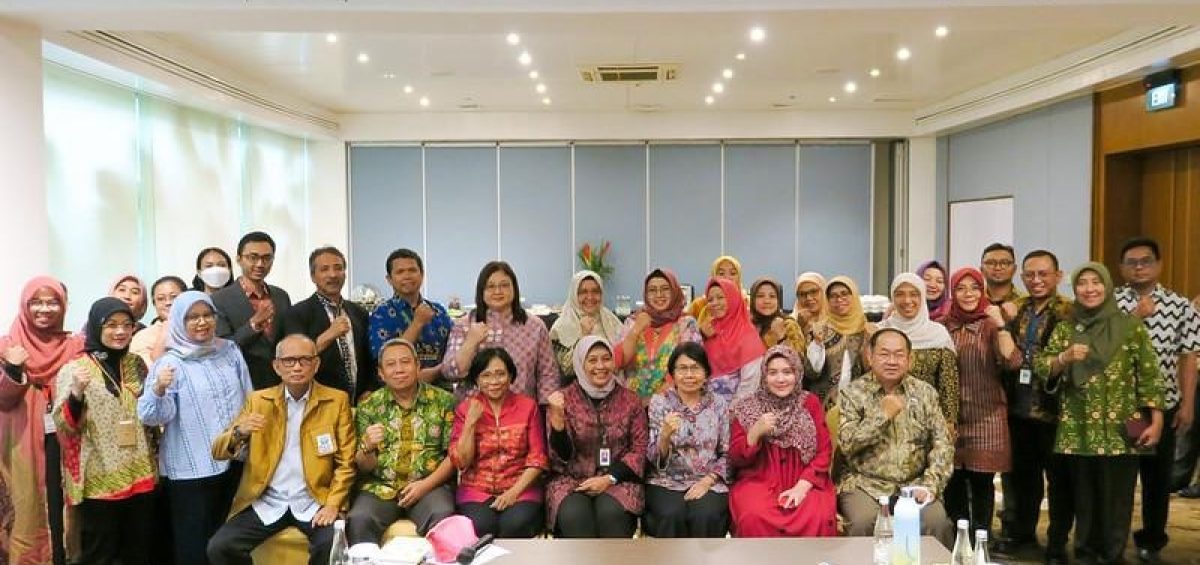 Public Hearing on Draft Government Regulation (RPP) derived from Health Law Number 17 of 2023
Public Hearing on Draft Government Regulation (RPP) derived from Health Law Number 17 of 2023